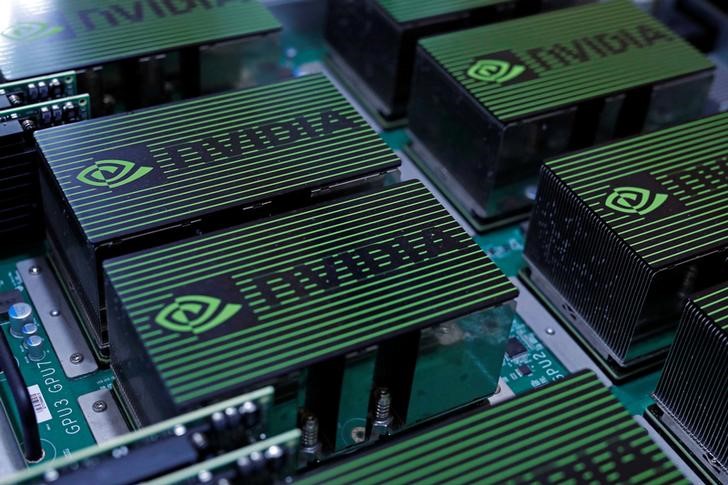SAN JOSE, Calif. - NVIDIA (NASDAQ:NVDA) announced today that it has partnered with Taiwan Semiconductor Manufacturing Company (TSMC) and Synopsys (NASDAQ:SNPS) to bring its computational lithography platform, NVIDIA cuLitho, into production. This collaboration aims to expedite the manufacturing process of advanced semiconductor chips.
The integration of NVIDIA's cuLitho with TSMC and Synopsys' systems is set to enhance chip fabrication and support the upcoming NVIDIA Blackwell architecture GPUs. Jensen Huang, CEO of NVIDIA, stated that the partnership leverages accelerated computing and generative AI to advance semiconductor scaling.
Computational lithography, a critical element in chip manufacturing, has traditionally been a CPU-intensive task, requiring vast computational resources. NVIDIA claims that using their GPU-accelerated platform can significantly reduce the time and resources needed for this process. For instance, 350 NVIDIA H100 systems could replace up to 40,000 CPU systems, according to the company.
TSMC has reported substantial performance improvements, increased throughput, and reduced power requirements due to the integration of GPU-accelerated computing into their workflow. Dr. C.C. Wei, CEO of TSMC, expressed that leveraging NVIDIA cuLitho has been instrumental in driving semiconductor scaling.
Synopsys has also seen benefits from the collaboration, with its Proteus mask synthesis software products running on NVIDIA's platform to accelerate computational workloads. Sassine Ghazi, president and CEO of Synopsys, highlighted the importance of this partnership in enabling angstrom-level scaling and reducing turnaround time.
NVIDIA has introduced new generative AI algorithms that further enhance the cuLitho platform, offering an additional two-fold speedup on top of the accelerated processes. This AI-driven workflow allows for the creation of near-perfect inverse masks, which can streamline the optical proximity correction (OPC) process.
The move to integrate cuLitho into production is a step towards addressing the increasing complexity and computational demands of advanced semiconductor manufacturing. This partnership is expected to facilitate the development of new technologies for chips at the 2nm scale and beyond.
This announcement is based on a press release statement from NVIDIA.
This article was generated with the support of AI and reviewed by an editor. For more information see our T&C.
